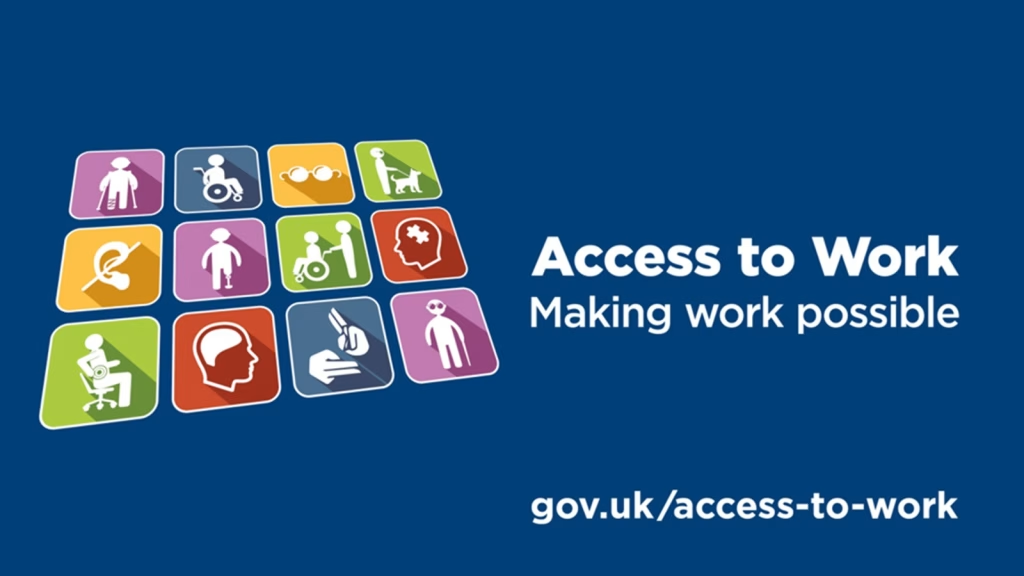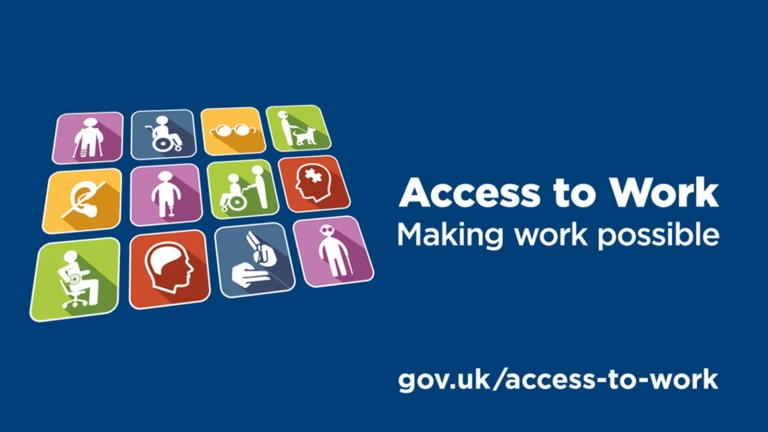
Access to Work provides crucial support that enables disabled individuals to enter, stay, and thrive within the workforce in the UK.
However, recent announcements from the Department for Work and Pensions (DWP) suggest this essential programme of support is under threat.
What’s changing in the Access to Work scheme?
Proposed reforms to Access to Work include:
- Reclassifying essential adjustments, such as ergonomic chairs and assistive technology, as “standard business items,” placing the cost burden on employers.
- Capping support worker hourly rates, potentially disincentivising the use of qualified support workers and not recognising the necessary experience needed to do well these support roles.
- Introducing stricter eligibility criteria for those providing support, which could restrict access to necessary assistance.
While these changes may appear administrative on the surface, their impact could be devastating and would force many disabled people out of work.
A blow to inclusion in the cultural sector

The arts and cultural industries are particularly at risk. Many creatives rely on this support to be able to do their jobs, especially as many people in the cultural sector are not well paid and cannot afford to pay for a support assistant or else on their own. Access to work is therefore an essential support scheme for them.
As Arts Professional reports, disabled artists and workers may be forced out of the sector if these reforms go ahead. After years of advocacy, investment, and progress in making the arts more inclusive, this backslide would not only limit creative opportunities; it would also silence important voices.
“We are at real risk of reversing gains in disability inclusion. For many, the loss of Access to Work support could mean the end of their career.”
Read the full article: Government urged to reconsider reforms that will ‘exclude’ disabled people from the arts
The Mental Health impact of reduced workplace support
We must also talk about the psychological toll. Changes to Access to Work don’t just create logistical hurdle, they cause real stress, uncertainty, and anxiety for disabled people. When support is withdrawn or delayed, it sends a clear message: your needs don’t matter (i.e. you don’t matter!)
Mental health is often an overlooked aspect when assessing the impact of policy changes. Yet, for many disabled workers, the fear of losing critical assistance can be mentally and emotionally exhausting. It undermines the very principles of equity and wellbeing that inclusive employment policies should uphold. Access to Work was about levering the field, so it’s a critical tool for equity for disabled people in the UK.
Strengthening, not shrinking, Access to Work
If the government is truly committed to supporting disabled people into employment and closing the disability employment gap, Access to Work should be expanded; not reduced. Policies should be centre on inclusion, recognising diverse experiences, and protects the right to work for everyone. Policies should create more equity, not reduce people’s chances to work and do well their jobs. This is what is at risk.
What you can do
If you want to stand in solidarity or are affected by these proposed changes, consider:
- Contacting your MP to express concern.
- If you work in the cultural sector, you can sign this open letter. I have done this too.
- Offering support to colleagues and friends, who may be stressed by this change of policy. If you have access to free counselling support, you may want to do a specific email to remind your staff that this support exists and that they can access it.
- Sharing information to raise awareness of what’s at stake. You can share this article for example!
- Continue building an inclusive workplace culture, so you are actively signalling that it matters for you that everyone, including disabled people, are included and can thrive at work. If you need help with this, contact me for a free chat.
This is about dignity, opportunity, and justice for all disabled people in the UK.



